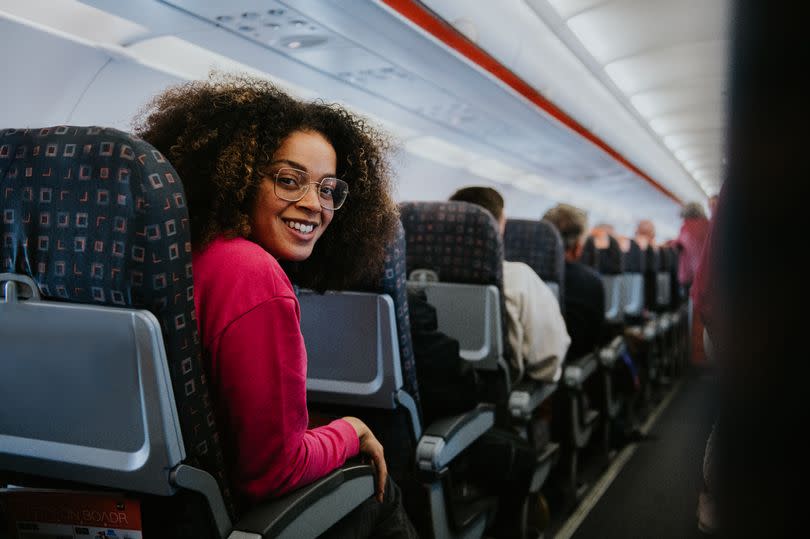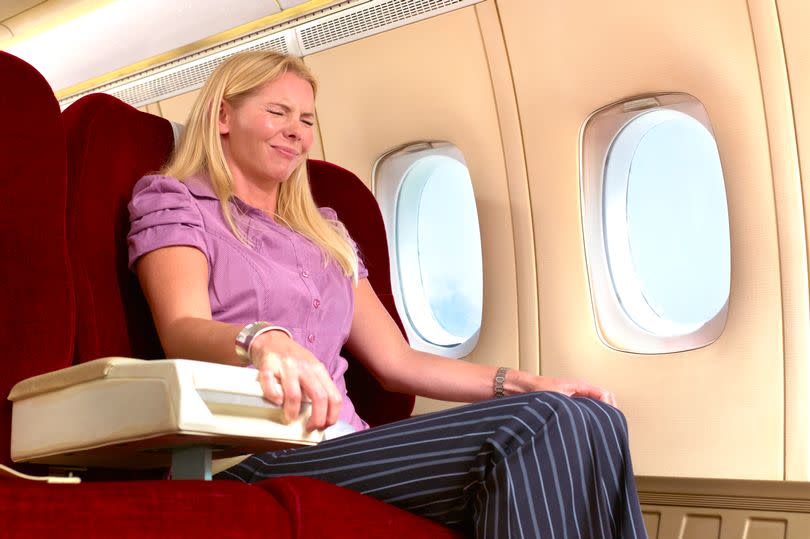What happens to your body when you fly - and top tips to stay healthy
With the Summer holidays now just around the corner, many of us will be excitedly counting down the days until our trips abroad to take in the sun, sights and sounds of many far flung destinations around the world. Yet while the appeal of holidays is nothing to be sniffed at, any destination that requires a flight can sometimes prove to be far from simple, with the very act of flying often having an unexpected impact on our health.
After all, flying as a mode of transport is understandably unnatural for humans. We never evolved to be able to flap our arms and soar across the sky, nor did we develop wings to do so without assistance - but we did have the ingenuity to pioneer air travel and soar across the skies in a long metal tube in excess of a whopping 500miles per hour. With this ‘unnatural’ mode of transport, perhaps it’s only fair that it should have some fairly unusual effects on the humble human body.
So what exactly happens to our bodies when we jet off abroad?
One recent study aimed to answer that very question, and in the journal Thorax, it was revealed that the cabin pressure in planes when maintained at a cruising altitude actually lowered blood pressure and increased the heart rate of passengers - even in young, healthy holidaymakers.

READ MORE: Urgent travel warning as life-threatening disease found in four holiday hotspots
In addition, this biological changes were also found to be worsened by in-flight alcohol consumption, which led the study authors to recommend steering clear of drinks on board if possible, or to reduce their alcohol intake, reports The Telegraph.
Dr Stephen Hughes, a senior lecturer at Anglia Ruskin University and an emergency medicine consultant revealed that there were several different physical and psychological changes to the human body while flying, especially as humans weren’t originally supposed to travel at 35,000feet the typical altitude of a commercial aeroplane.
As the altitude is so great, without the routine pressurisation we see nowadays, our oxygen levels would soon plummet and we would rapidly lose consciousness. To combat this, aircrafts are pressurised to allow a relative altitude of around 6000-8000feet internally, the equivalent of someone climbing halfway up Mont Blanc.
In addition to lowering our blood pressure and increasing our heart rate, several other changes also take place that you may have previously experienced yourself before, such as ‘popping ears’ due to changes in pressure, dry eyes due to a change in humidity, and even bloating or a feeling of stomach gas, due to the expansion of gases as the plane ascends.

Some passengers may also experience a condition known as deep vein thrombosis (DVT) on long haul flights, or a blood clot inside a deep vein as sitting in one position for too long has been clinically proven to increase the risk of the condition.
Skin changes can also take place too, partly due to dehydration and partly due to a lower humidity level while in the air, with many travellers reporting drier skin after flights.
There is also a mental health toll to consider too, as anxious passengers may see their bodies release stress hormones when travelling by plane, something that could lead to hyper-ventilation, and an increased heart rate which could potentially exacerbate a pre-existing heart condition.
Although medical emergencies can and do arise on planes as a result of flying, they are a very small minority of cases when compared to the millions of people that travel every year, however the toll flying takes on our bodies can be a contributing factor.
So how do we stay safe on board a flight?

Although the list of effects flying can have on our bodies is intimidating, there are several simple ways to help maximise your safety and comfort onboard a plane. One of the easiest ways to help stay in good health is to avoid dehydration on board by drinking plenty of water.
Now, this is easier said than done, as nobody wants to spend hours heading backwards and forwards to a tiny aeroplane bathroom, but your body will thank you for the extra liquid, as it will help your skin to stay hydrate, combat any unpleasant side effects such as headaches or nausea, and additionally help to maintain your blood pressure. It can even help to reduce the bloat and any gut issues, by helping to maintain gut motility.
Another way to stay safe on board is to keep washing your hands and to wipe down any surfaces such as tray tables with an anti-bacterial wipe. As planes are traditionally drier environments due to lower humidity, they can sometimes be the prime spot to catch a cold or virus, so staying on top of your hand hygiene can help to reduce the risk where possible.
When it comes to beating the dreaded 'ear-popping sensation' associated with take-off and landing, one quick tip to help lessen the effect is to chew something or enjoy a drink, as swallowing has been shown to help equalise the pressure in your ears, by opening your ear's Eustachian tube, enabling the tube to open to small amounts of air.

Movement is also another factor to consider, particularly on long haul flights. Although safety guidelines on board aircraft often encourage passengers to remain seated (and especially when the fasten seatbelt sign is illuminated) getting up to stretch your legs in the aisle, or performing simple yoga exercises can help to maintain blood flow in your limbs and reduce the risk of blood clots. To boost the effectiveness here, passengers could also consider investing in a pair of compression socks for an added layer of protection against DVT.
Keeping your body nourished is another factor to take into account, as it can calm your digestive system and maintain your blood sugar to avoid any unpleasant dips that can lead to discomfort. Although these days there is a wealth of choice for in-flight meals, not every airline will be everyone’s idea of good cuisine and in these cases a healthy snack may be more beneficial.
Bananas in particular are often recommended due to their nutrient rich concentration of magnesium and potassium, as well as being easily digestible and kind on the stomach.
If you have any concerns about your health, you should always speak to your doctor about your symptoms as your first port of call.

 Yahoo News
Yahoo News 
